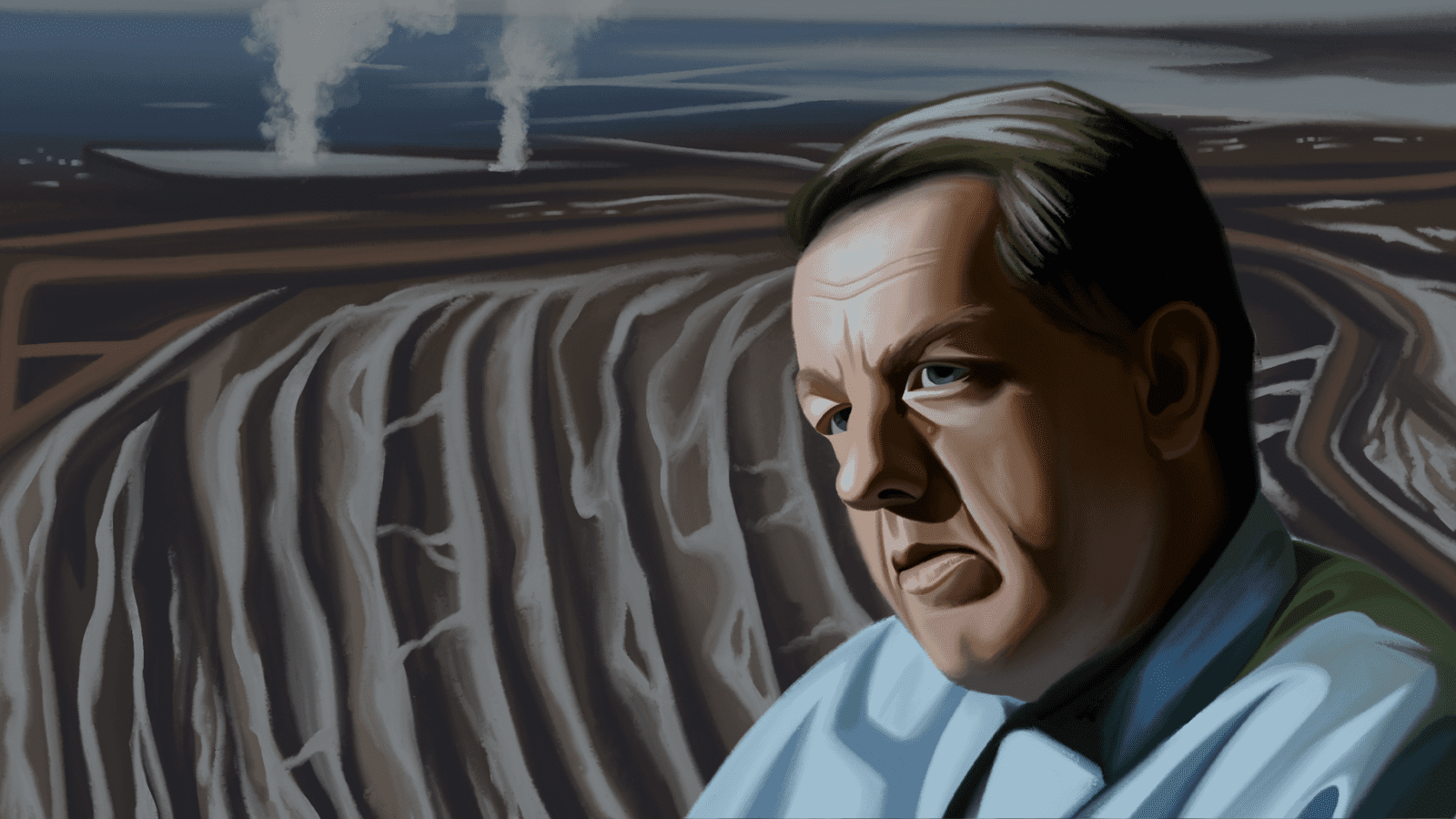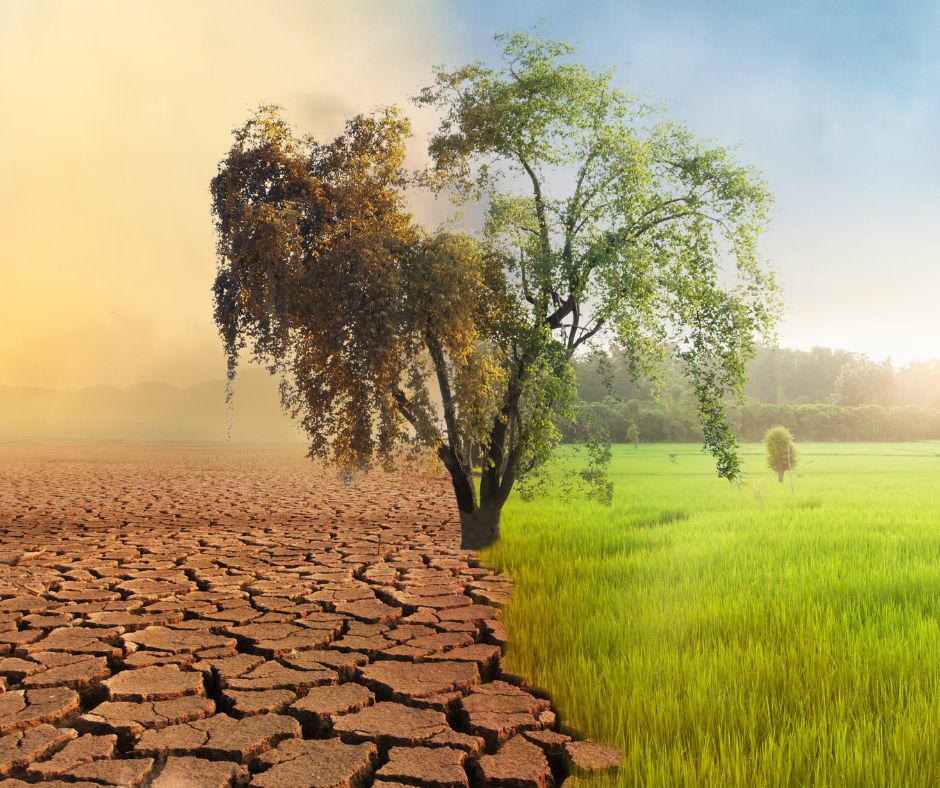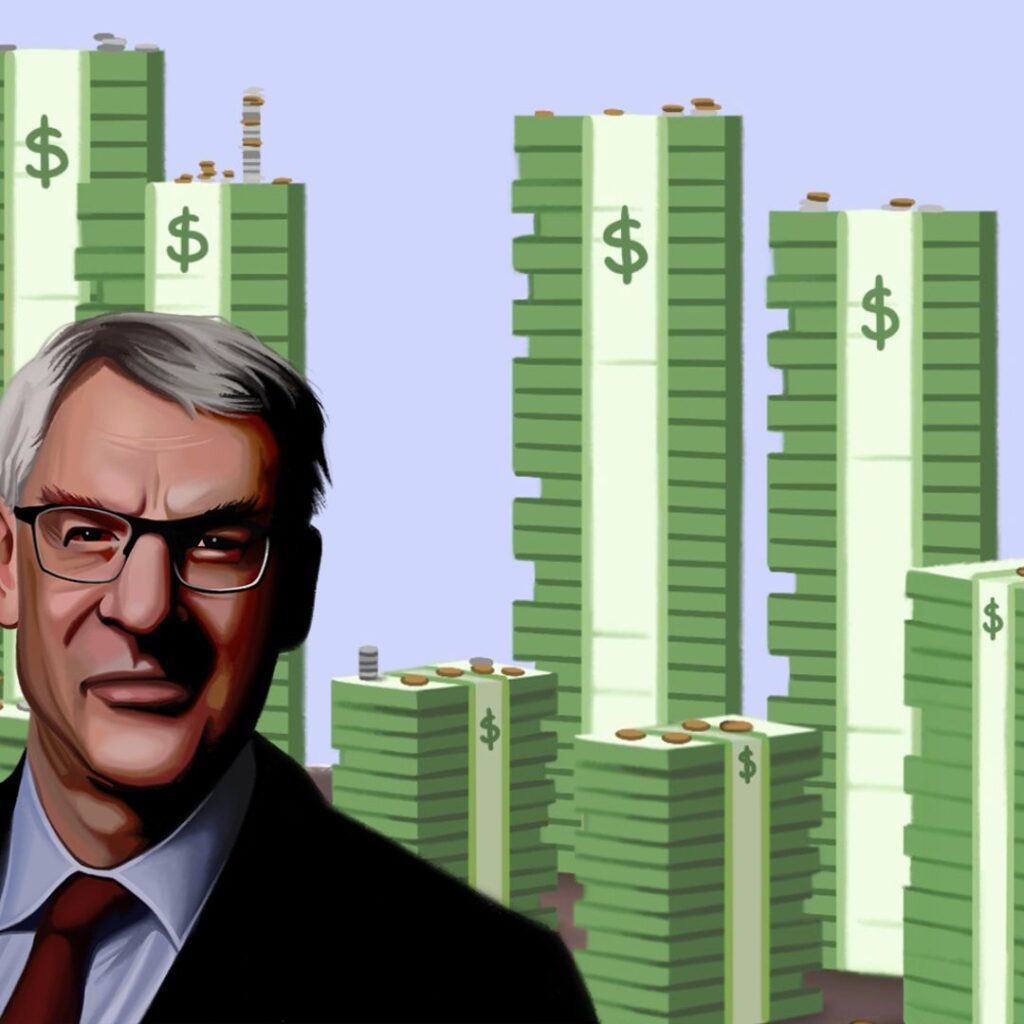The majority of Canadians understand that climate change is one of the most important issues we face. So why does it feel like we aren’t making progress fast enough?
Enter, Canada’s Climate Villains
The influential players behind Canada’s oil and gas industry, who should be held responsible for their outsized role in causing the climate crisis, aren’t the ones feeling the heat.
All this hard work, and they rarely get the credit – what a shame! So, we figured we should highlight some of their career achievements for you.
We’re starting with the President and CEO of Imperial Oil, Brad Corson.
What makes Brad Corson a climate villain? Just look at his resume! It’s loaded with experience keeping industry secrets, hoarding wealth and greenwashing dirty oil projects. The resume format may be satirical, but the information is real.
And if you want to challenge the power that Brad Corson has you can help us hold Imperial Oil accountable for its recent toxic tailings disaster by clicking here to send a letter to the federal government and government of Alberta.

- Imperial Oil Ltd: 2019-Present
- Exxon Mobil Corp: 1983-2009 & 2014-2019
- Esso Petroleum Co Ltd: 2009-2014
Villain Career Profile
Corson has spent his entire career extracting and marketing oil and gas, working mostly for Imperial Oil and its parent company ExxonMobil. He joined ExxonMobil in 1983, more than a decade after scientists at the company had begun documenting the damaging impacts of their product’s pollution on the environment and climate. Throughout Corson’s first decade at ExxonMobil, the company began engaging in climate denial tactics that it would continue to employ for decades, like trying to discredit climate science – which their own research upheld – and trashing climate solutions. Though the tactics employed by Corson today look different, the end goal is the same: keep digging to the last drop of oil.
Corson has a strong record of failing to protect the public interest. In his current role at Imperial Oil, he oversaw its most recent and ongoing tailings ponds leak at the company’s Kearl facility in Northern Alberta.
5.3 million litres of toxic waste spilled into nearby lands and waters: areas used for hunting and harvesting by Indigenous communities. Only after this spill, downstream Indigenous communities, including Athabasca Chipewyan First Nation and Mikisew Cree First Nation, were notified of a second leak from the same facility – one that had been ongoing for nine months. This caused widespread anger from the Treaty 8 First Nations communities who harvest from land and water near the leak. #ImperialKnew
In addition, Imperial’s oil and petrochemical refineries are major polluters. Toxic releases are routine at Imperial’s facilities in the area around Sarnia and Aamjiwnaang First Nation, referred to as “Chemical Valley”. The refineries make millions of tonnes of polyethylene, a type of plastic that is used to produce wasteful single-use packaging. In 2021, under Corson’s leadership, Imperial Oil joined forces with two other major plastics producers to sue the federal government for trying to regulate harmful single use plastics and reduce industry pollution.
Despite Imperial Oil’s track-record of leaks, spills and climate denial, Corson is a strong promoter of greenwashing and the idea that the oil and gas industry should now be trusted to bring down their emissions with expensive, risky, and underperforming carbon capture projects and pipelines (but only if the government pays for it). Corson believes that his skills and experience make him the perfect candidate to influence decisions about climate policy in Canada.
Corson hopes to continue making multi-millions dollar paychecks, and billions in profits for shareholders, by pumping and promoting oil and gas while Imperial’s emissions wreak havoc on the planet.
Top skills


Career Highlights
Highest paid CEO of a Canadian oil company in 2022
- Corson’s pay nearly doubled in 2022 to $17.34 million, making him the top-paid CEO among the major companies in the Canadian oil and gas industry.
- His estimated net worth is at least $26 Million dollars as of June 2023.
Recognized for Expert Greenwashing: “A leading fuels marketer from coast to coast”
- Corson joined the Pathways Alliance – the coalition of six largest tarsands companies – to rebrand oil, gas, and carbon capture with ‘net-zero’ language, despite Imperial having no absolute emissions reductions target.
- Despite an official investigation by the Canadian Competition Bureau into the marketing practices of the Pathways Alliance, following work from Greenpeace and the Canadian Association of of Physicians for the Environment (which you can support here) he continues to greenwash.
Blocked adoption of emissions reductions target
Lobbied government incessantly
- In the first quarter 2023, Imperial Oil, CAPP, and the Pathways Alliance (the companies and associations Corson works for or represents) had 66 lobby meetings with government officials.
Laid-off workers to increase profits
- One of the oil majors leading the push to use automation to reduce jobs in the oil patch, while benefiting from tax cuts in Alberta meant to boost employment.
- At a worker lodge for Imperial employees, 300 staff are being fired after voting against pay cuts & benefit rollbacks – despite Imperial’s tens of billions in revenue last year.
Leaks and Spills
2022 / 2023 (ongoing) — Kearl Lake, AB
5.3 M litres of tailings leaked (more here)
2022 — Sydney, NS
600,000 litres of gasoline leaked (more here)
2022 — Norman Wells, N.W.T.
55,000 litres contaminated water leaked (more here)
2020 — Kearl Lake, AB
Pipeline leak of 90 m3 of diluent on the ground (more here)
2019 — Nanticoke, ON
95 litres of diesel was lost from a leaking valve (more here)
2017 — Cold Lake, AB
1.2 M litres of heavy oil and contaminated produced water leaked (more here)
2017 — Sarnia, ON
10-day uncontrolled flaring incident (more here)
2016 — Sarnia, ON
21 to 43 barrels of broiler cleaning acid solution (more)
2014 — Sarnia, ON
3.5 hour leak of hydrogen sulphide gas (more here)
2009 — Norman Wells, N.W.T.
3,000 litres anti-rust chemicals (more here)
Board Appointments
- Canadian Association of Petroleum Producers: the biggest and most active oil and gas lobby in Canada, with a history of shady climate denial and delay tactics.
- C.D. Howe Institute: a Canadian policy think tank that predominantly takes a right-wing or conservative approach to economic and social policy.
The Climate Villains campaign highlights the leaders of the fossil fuel industry that play key roles in expanding and financing climate-wrecking fossil fuels, blocking climate action, and spreading disinformation. These villains are more concerned about their profits and wealth than the future of the planet, and that’s why we’re profiling the ‘resume’ of each climate villain.
We know that government intervention is critical for tackling the climate crisis with decisive urgency and at the scale necessary, so our approach is to put pressure on governments to pass more ambitious climate policies.
While we aim to advance policy that works in the public interest, oil and gas executives, and their powerful allies, are using their political power to block climate action in order to personally profit from more oil and gas production. This is nothing new: these companies have been actively blocking climate policy for decades. Their earlier tactics involved straight-up climate denial, and now they have pivoted to delaying, greenwashing and pushing dangerous distractions. And many people, including those in the government, are falling for it.
That’s why each month we’ll highlight one of the villains, so you can learn more about the tactics they use to delay climate action and what you can do to fight back for real climate solutions.







